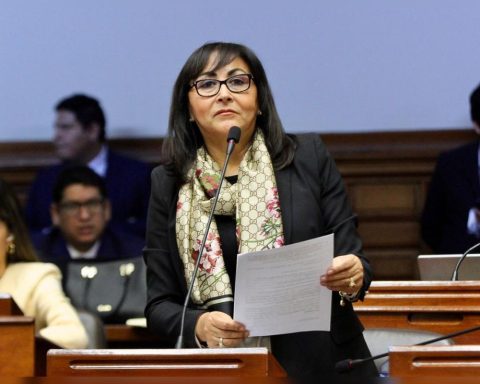Page Seven / La Paz
Two measures come into force that seek to reduce the costs of calls from abroad and the use of mobile internet data and that users of cellular service are not overcharged.
On the one hand, as of Saturday, January 1, 2022, Bolivians, Colombians, Ecuadorians and Peruvians will not have to pay any additional surcharge for post-paid international roaming service in the countries of the Andean Community of Nations (CAN).
Thanks to Decision 854, a supranational and mandatory regulation, the same conditions or rate plans will be applied as the country of origin for voice, SMS and data services. This benefit for the pocket of the more than 111 million inhabitants of the region is part of a regulation that was approved by the member countries on February 19, 2020, thereby strengthening the Andean Digital Agenda.
On the other hand, the Telecommunications and Transportation Regulation and Supervision Authority (ATT) determined that the billing of the internet access service will be charged by data volume, for this a rounding or fractioning will be carried out to one kilobyte (1KB), for be the basic unit to be billed by the operator.
Benefit
The cyberactivist Mario Durán said that the elimination of “roaming” is a late decision, since there are alternatives, such as instant messaging services (WhattsApp, Telegram and Signal) that lower the costs of messages, calls and data transfer.
In Bolivia, companies offer calls to countries (CAN) at 0.69 bolivianos per minute, SMS at 0.21 bolivianos and MB at 0.34 bolivianos. “If the costs are compared, the call rates are cheaper than those charged in the Bolivian territory. SMS are in the same price range and MBs at 50% ”, he specified.
This phenomenon occurs because in neighboring countries the regulation promotes a competitive market, which benefits users with rates and data plans and calls much cheaper than in Bolivia, where an oligopoly rules that guarantees the profits of telephone companies.
The former director of the ATT Cliford Paravicini said that from now on if a citizen travels, for example, to Lima, they will be able to keep the same Tigo, Viva or Entel phone number without suffering an extraordinary recharge in the service rate. “Before it happened that if, for example, in Bolivia the minute was one Bolivian and in Peru two Bolivians, Viva or the other companies would invoice you for the two Bolivians plus taxes,” he said.
In the case of the ATT provision, Paravicini argued that rounding based on the volume of data consumed is positive, although it may not have the same impact that it generated in 2011, when this issue was regulated with voice calls.
Until that year, if someone spoke for a minute and a few seconds, the telephone companies billed about two Bolivians and the issue had to be regulated.
“The same thing happens with the data. It is good that it regulates and that companies do not steal a mega or half mega. Surely they discovered that if you bought three megabytes, and did not consume it all in a while, it would be billed on the total, even if you do not consume. The ATT has sampling systems and must verify, but the user must monitor and report if they are overcharging, “said Paravicini.
Durán explained that internet data is like water bottles, where the water is consumed in thimbles or glasses and the supplier charges for the entire container.
For example, he said that the Entel and Tigo telephone companies applied rounding to 1024 Kb (1 MB) regardless of the actual volume of data consumed, that is, if a person downloaded a 256 Kb image, they charged for 1024 Kb.
“With the new regulations the rounding will be 1 Kb, which should translate into the fact that the MBs acquired must become a greater volume of internet data, following the analogy of the glass of water, they will charge us for each glass, no longer for the bottle ”, he specified.
He added that users expect the ATT to carry out its oversight of telephone companies, a task that is currently very lax and permissive.
Rates and companies
Tigo and Entel • The roaming rates per local outgoing minute in the visited network is US $ 0.1, as well as the rate per minute outgoing to Bolivia. The rate per minute incoming or received in Tigo is $ 0.07 and per SMS sent is $ 0.03, according to the rate plans for this 2021.
Megabytes • The data roaming rates per MB is US $ 0.05 in Tigo and Entel.
Live • This telephone on its website offers a data exchange for its roaming service this year.
















